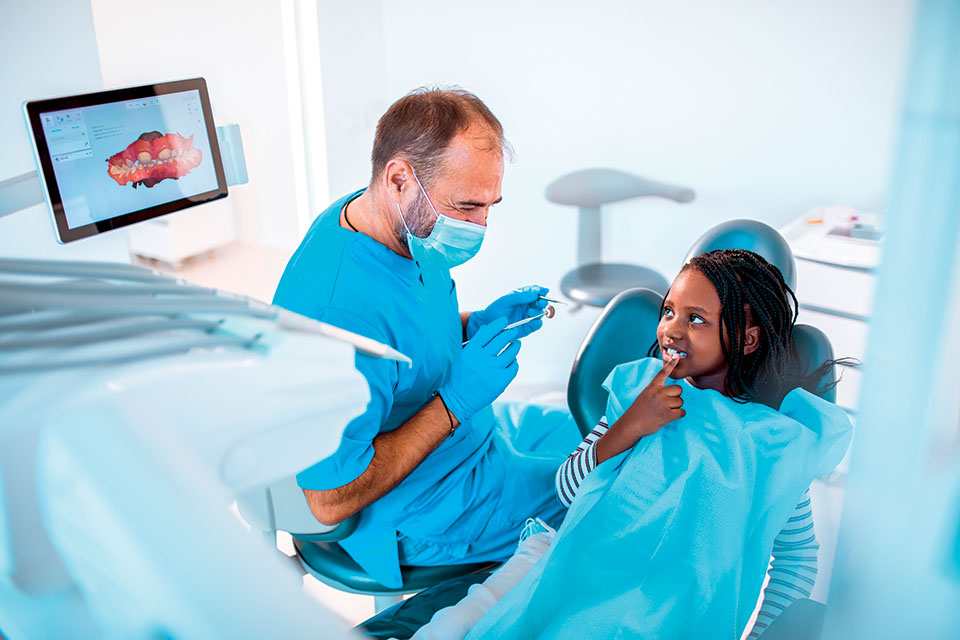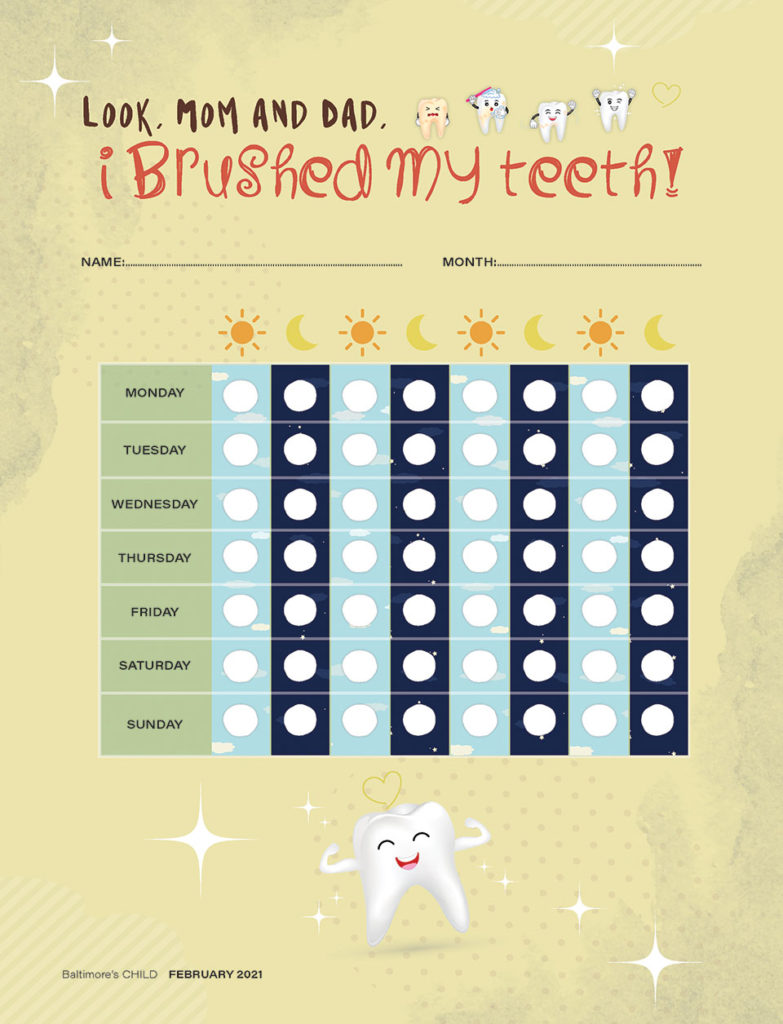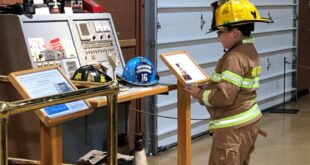
The ongoing COVID-19 pandemic has caused us to rethink, rework and reprioritize the way we go about our lives. It’s resulted in confusing decisions for parents, raising questions such as “which outings are necessary?” and “how do I keep my child healthy when at businesses and other types of appointments?”
Unfortunately, COVID-19 has also resulted in delayed essential care for children. Parents are often torn between keeping routine care health appointments and staying at home.
According to the Centers for Disease Control and Prevention, childhood tooth decay is the single most common chronic childhood disease. By age 8, more than half of children have had a cavity in their baby teeth. The CDC also reports an average of 34 million school hours lost each year due to emergency dental services.
While your child’s routine dentist appointments may look different at the moment, it’s important to continue to keep up with oral health to ensure children are well-equipped to tackle this challenging year in their lives.
We spoke with Baltimore-area dental professionals for their advice on why and how to go about bringing in children for routine dental hygiene appointments during the COVID-19 pandemic.
Good oral health care is essential health care
According to Dr. Shari C. Kohn at Dentistry for Kids in Hunt Valley, “Oral health is the gateway to a child’s overall health” and “delaying a visit to the pediatric dentist can compromise a child’s quality of life, affecting things like eating, sleeping, self-esteem, speech development and school performance.”
“Preventive dental exams allow the dentist to screen for conditions such as tooth decay, gingivitis, periodontitis and other oral conditions that can affect the overall health of a person,” says Dr. Erin Mondesir of Adventure Dental in Baltimore. “Although dental caries (tooth decay) are largely preventable, they remain the most common disease of childhood.”
In light of this reality, the American Dental Association defines oral health care as essential health care. Mondesir recognizes that the pandemic has resulted in “delayed dental care” for many individuals, but “the concern is that delaying treatment for dental caries and other oral conditions can lead to pain and infection and can have adverse effects on a person’s overall health.”
Safety at the dentist’s office
Kohn stresses that “pediatric dentists have been working hard to put new safety protocols in place…. We are ready for you and it is safe to bring your child to the pediatric dentist’s office.” New precautions for providers include patient rooms that follow social-distancing recommendations and ongoing deep office sanitation, she says. Families will also find that magazines and toys have been removed from waiting rooms. Additionally, all visitors to pediatric dentists should come into the office with face coverings.
Mondesir also assures that “throughout the COVID-19 pandemic, the American Dental Association, American Academy of Pediatric Dentistry and many local dental societies have been able to educate dental providers on PPE items that will help ensure safety of the patients and the practitioners and their teams.” She cites this distribution of information as being the key to the reopenings of oral health care providers.
What to expect
Kohn says families should expect a call or text prior to appointments to confirm that “you and your child are healthy, have not been exposed to the virus or have been around friends and families who may be exposed.” Her Hunt Valley office has families arrive early for “COVID-19 questions, medical updates and temperature checks prior to walking into the office.” In addition, the practice has “pretty much closed our waiting room and are encouraging parents to wait in their cars during their child’s visit or limit one parent per family.”
Mondesir reports that Adventure Dental screens families via “a phone call with screening questions prior to their visit.” A screening station at the entrance to her practice location includes temperature checks and symptom-related questions. The practice also has new social-distancing measures for waiting rooms, as well as “features such as online check-in, which allows someone to wait in their car if they choose and limits the time a family would spend in a waiting room.”
Additional resources and advice for parents
Kohn points parents who are looking for more information on oral health care during the COVID-19 pandemic to mychildrensteeth.org, the consumer portal maintained by the American Academy of Pediatric Dentistry. She also recommends the Dentistry for Kids Hunt Valley YouTube channel, which aims to show kids what their dentists are looking for during a dental checkup.
When it comes to oral health, Mondesir stresses that “prevention is the best medicine.” Aside from attending routine checkups, parents should continue to ensure that children “brush two times per day (and) floss at least once per day,” as well as limit snacks and drink water between meals.
Get your little ones in the habit of brushing their teeth
Download our tooth-brushing chart for your child.

 Baltimore's Child Baltimore's Child
Baltimore's Child Baltimore's Child








